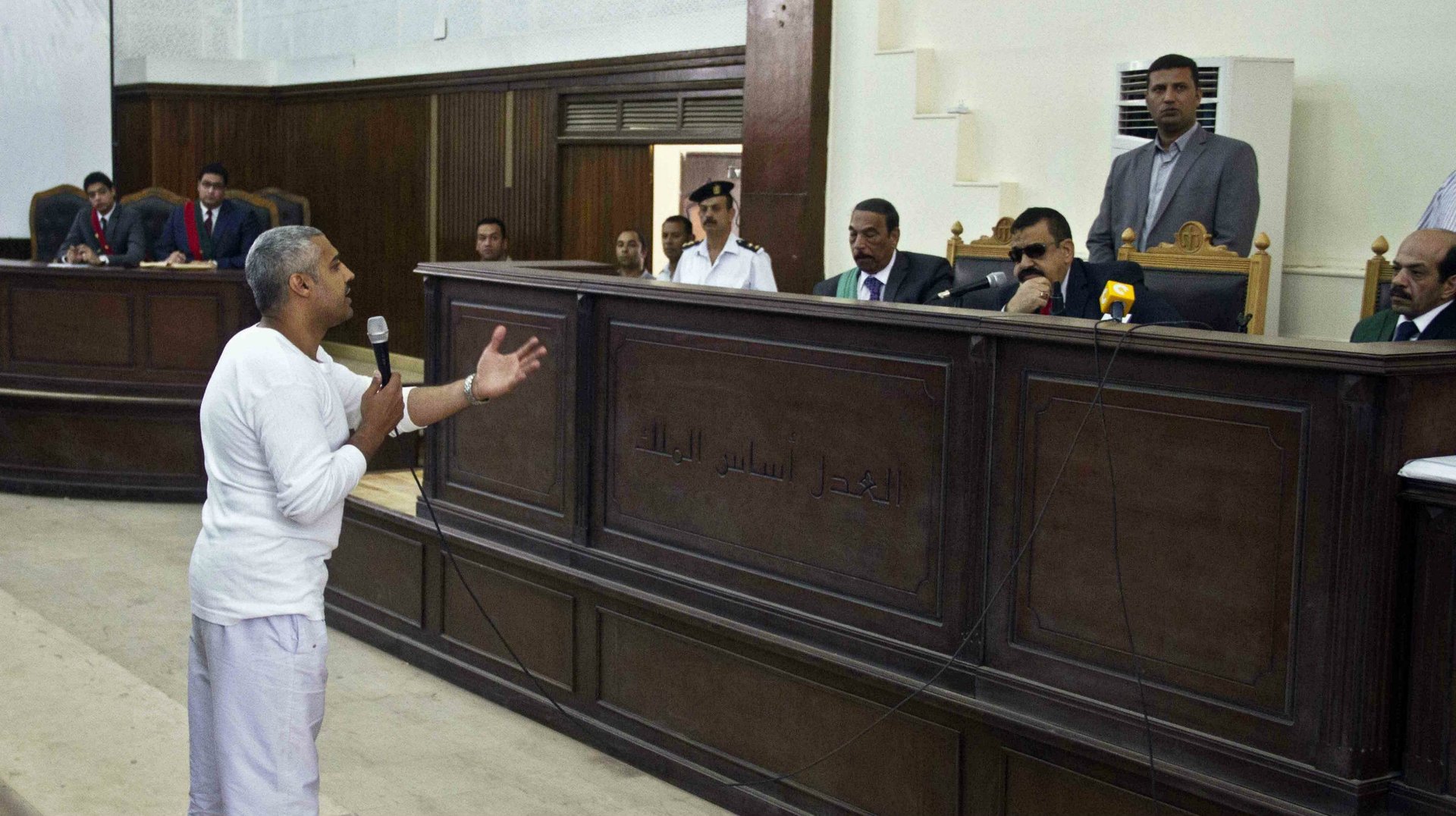The nonsensical “evidence” Egypt used to convict Al Jazeera’s journalists
The sentencing of Peter Greste, Mohamed Fahmy and Baher Mohamed, three Al Jazeera journalists, to a collective 24 years today on charges of “airing false news” that harmed Egypt’s security shocked Australian officials, their employer and their families. It is also expected to raise serious questions about the legitimacy of Egypt’s judiciary, because of the mystifying way the trial was conducted and the sentence reached.


The sentencing of Peter Greste, Mohamed Fahmy and Baher Mohamed, three Al Jazeera journalists, to a collective 24 years today on charges of “airing false news” that harmed Egypt’s security shocked Australian officials, their employer and their families. It is also expected to raise serious questions about the legitimacy of Egypt’s judiciary, because of the mystifying way the trial was conducted and the sentence reached.
“Not a shred of evidence was found to support the extraordinary and false charges against them,” Al Jazeera English managing director Al Anstey said after the sentencing, echoing other critics. “At no point during the long drawn out ‘trial’ did the absurd allegations stand up to scrutiny.”
The trial of the three journalists, which started in February after their arrests in December, relied heavily on evidence culled from their personal possessions, but prosecutors never made any link between the innocuous-seeming material presented and the charges against the journalists. Making matters worse, in one instance, the defense lawyers were asked to pay a “fee” of about $150,000 to view evidence.
Three other foreign journalists were tried and sentenced to 10 years, but are not in Egypt and unlikely to serve their sentences. Because journalists were allowed into the courtroom, there is a record of what was presented as evidence. It includes:
A video for the melancholy Gotye song “Somebody that I used to know” that came from a cell phone that allegedly belonged to one of the journalists:
Video footage of a press conference in Kenya that happened in 2013:
A picture of Greste’s parents from his flash drive.
and this clearly manipulated picture of former armed forces chairman Mohammed Hussein Tantawi with Fahmy:
At some points, under questioning from the defense attorney, experts called as witnesses against the journalists “failed to name a piece of evidence that threatened Egypt’s national security,” and said they “they could not remember the details,” ABC News reported.